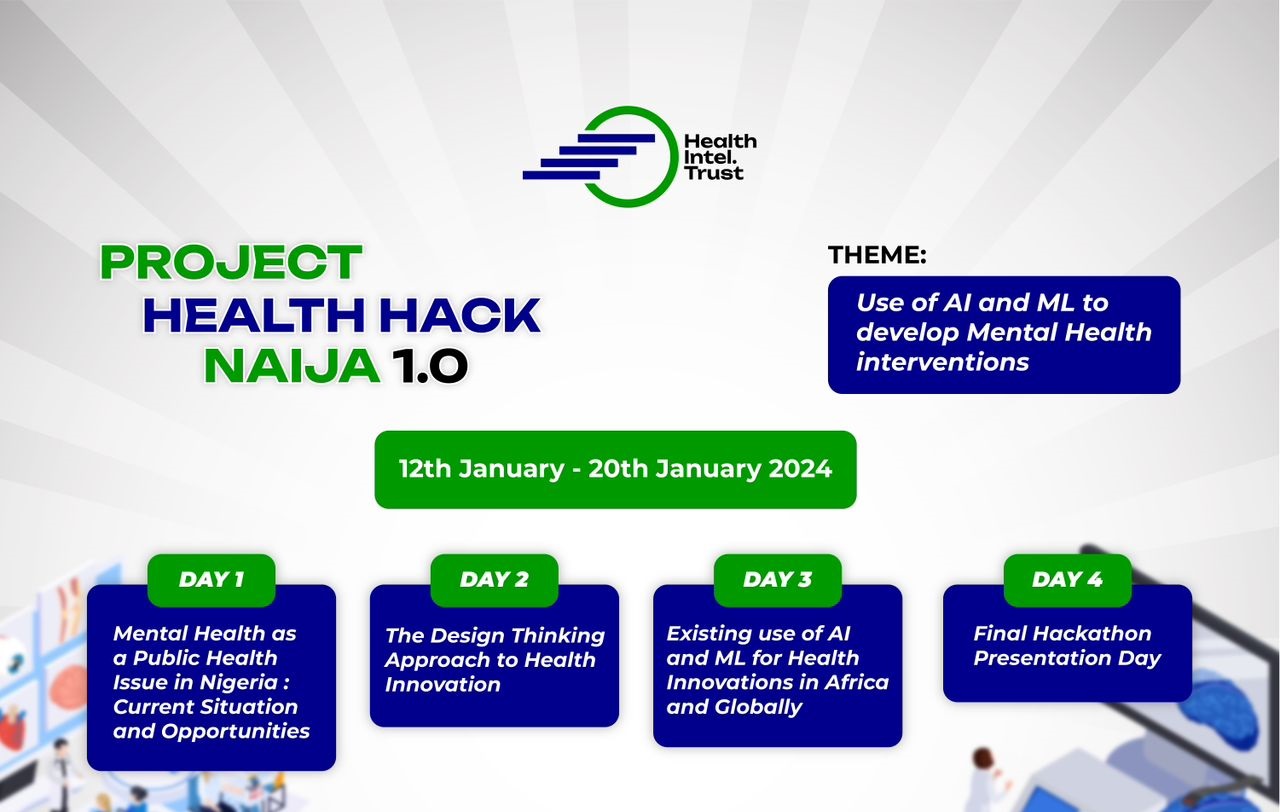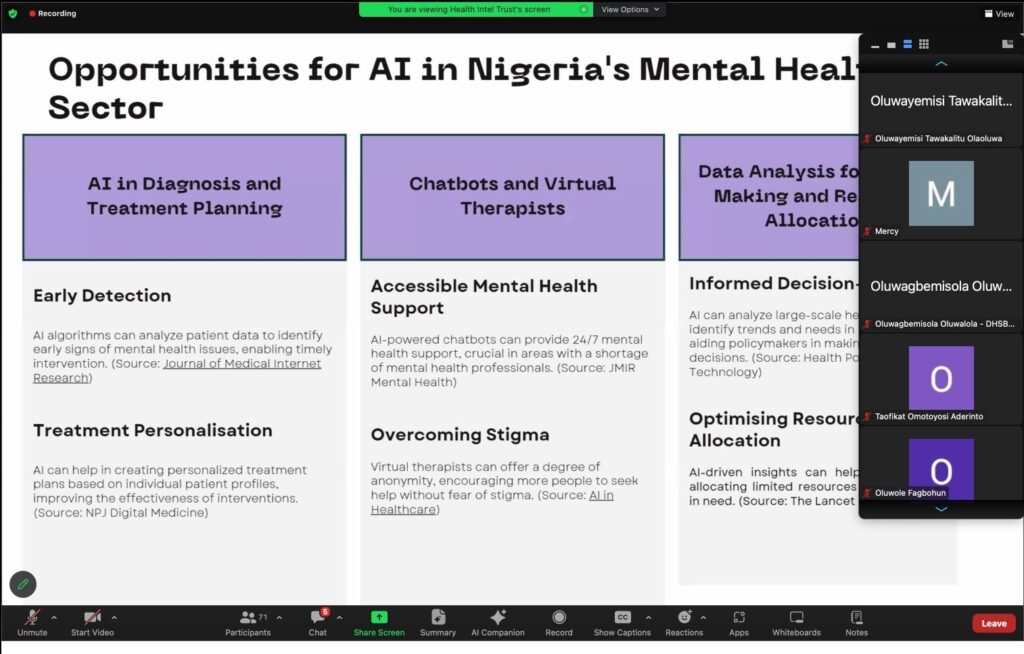
- admin
- February 13, 2024
- Hackathon
In Africa, mental health is a huge problem with a disturbingly high prevalence rate. Nigeria accounts for at least 60 million people suffering from mental health-related illnesses and the majority are not aware. Even those that are aware can’t seek for service provision due to fear of stigma and discrimination in their communities. More than 75 percent of those who need to access mental health services can’t do so because the existing systems don’t allow it. For instance, there are currently 300 psychiatrists amidst a population of not less than 200 million people. Therefore, there is a need to establish an inclusive mental health care system with technologically-driven solutions that anticipates, prepares, responds, recovers and supports those that need reliable information and services. In line with SDG 3.4, there is a need to advocate for mental health prioritization but more importantly, the deployment of mental health interventions that are enabled through technology to address the existing challenges. There is enough available evidence that young people can serve as agents of change, if engaged and empowered. They are able to increase community knowledge and develop technology-enabled innovative solutions to tackle specific problems. This project served as an opportunity to harness and expand the potential, expertise, energy and ideas of youths in Nigeria to address Mental Health.
This project was organized and funded by Health Intel Trust under the leadership of Mr. Moshood Yahaya (Executive Director), Mr. Oluwole Fagbohun (Director of Partnerships and Technology), Mr. Yusuf Babatunde (Director of Programs and Projects), Ms. Temitope Ben-Ajepe (Director of Operations), and Ms. Muizat Ogunmola (Director of Media and Publicity). Health Intel Trust is a health innovation and research organization with a mandate to groom a new generation of public health innovators and researchers. Through different projects like bootcamps, workshops, and incubator hubs, they bring together motivated young people and brilliant minds from diverse backgrounds, to whom they provide hands-on practical training, capacity-building sessions and mentoring to build sustainable and locally-relevant public health solutions.
The project kicked off on the 27th of December with a crowdsourcing open call for multidisciplinary teams of Nigerian youths to submit a 1-page concept note of their proposed ideas to the mental health challenges we face in the country. Crowdsourcing is a participatory method that has a group of individuals attempt to solve a problem and then implement selected solutions. Crowdsourcing methods are increasingly being employed in medical and health research to bridge the gap between the public, researchers and policy makers. A total number of 34 team submissions were received within the 14-day window. Afterward, they invited the teams to a workshop phase where they invited experts such as Dr. Oladele Fagbohun, a renowned mental health expert in the country and Ms. Adetoro Promise, a youth mental health advocate, gave presentations on the current situation of mental health in Nigeria and available opportunities for innovation.
They also invited technical experts in Artificial Intelligence and Machine Learning from the United States and the United Kingdom to show the participants various applications of these tools in public health and specifically on mental health. These AI experts include Dr. Ayomide Owoyemi, Ms. Rachel M. Harrison, and Dr. Anton Dereventsov. Lastly, a workshop on design thinking was also facilitated by Mr. Yusuf Babatunde to equip the participants with knowledge and skills on building desirable, feasible and viable innovations. After the workshop phase, the teams were asked to resubmit their updated 2-page concepts and a 3-minute video presentation based on all the learning from the workshop phase. A total number of 26 submissions were received for this phase. All submissions were reviewed by three independent judges with predetermined evaluation criteria and the best 8 teams were selected for the final presentations.
Four (4) judges from the workshop facilitators, including Professor Ayede Adejumoke Idowu from the College of Medicine, University of Ibadan and University College Hospital Ibadan listened to the team’s presentation and the Top 3 ideas were given a total of N950,000 as cash prizes (Funded by Health Intel Trust and Professor Ayede). You can find a summary of the finalist ideas on the website here.
The organization is currently seeking partnerships to pilot all finalist ideas. As said by the team, “we don’t want to organiza another hackathon that ends at the idea stage. Our dream is to see all their ideas being implemented and solving a real problem in our country”


